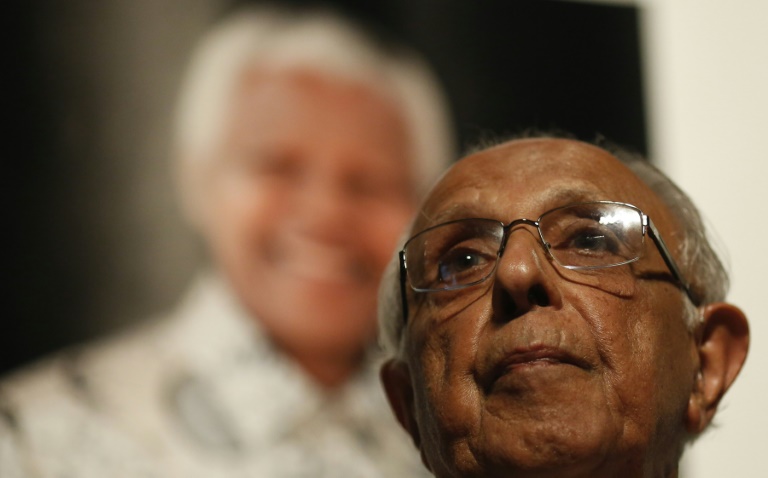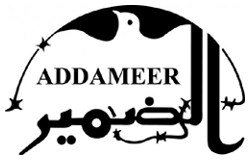
Leading South African anti-apartheid activist Ahmed Kathrada, who was one of Nelson Mandela’s closest colleagues, died early Tuesday aged 87, Kathrada’s charity foundation said.
Kathrada was among those tried and jailed alongside Mandela in the Rivonia trial in 1964, which drew worldwide attention and highlighted the brutal legal system under the apartheid regime.
Kathrada spent 26 years and 3 months in prison, 18 of which were on Robben Island.
After the end of apartheid, he served from 1994 and 1999 as parliamentary counselor to President Mandela in the first African National Congress (ANC) government.
“This is great loss to the ANC, the broader liberation movement and South Africa as a whole,” Neeshan Balton, head of the Ahmed Kathrada Foundation, said in a statement.
“‘Kathy’ was an inspiration to millions in different parts of the world.”
 Ahmed Kathrada lors des funérailles de Nelson Mandela le 15 décembre 2013 à Qunu
Ahmed Kathrada lors des funérailles de Nelson Mandela le 15 décembre 2013 à QunuOdd Andersen (AFP)
His activism against the white-minority apartheid regime started at the age of 17, when he was one of 2,000 “passive resisters” arrested in 1946 for defying a law that discriminated against Indian South Africans.
In July 1963, the police swooped on Liliesleaf Farm in Rivonia, a Johannesburg suburb where Kathrada and other senior activists had been meeting in secret.
At the famous Rivonia trial, eight of the accused were sentenced to life imprisonment with hard labour on Robben Island. His fellow prisoners included Mandela, Walter Sisulu and Denis Goldberg.
Internationally, Kathrada was a staunch supporter of the Palestinian cause, accusing Israel of reincarnating apartheid in its policies towards the Palestinians.
Speaking last year at the fifth annual Palestine Conference, Kathrada said that during his visit to the region he had “seen and heard enough to conclude that Apartheid has been reborn here. In its reborn form it is however worse than its predecessor.”
“Even during the worst days of Apartheid we did not have walls to divide and control people, we also did not have separate roads for separate races, and we did not have the system of checkpoints that exist here,” he asserted.
“There are such immense similarities between the tactics used by the Apartheid government and Israel to deal with opposition that one can only conclude that the closeness between the two regimes had a great deal to do with developing common approaches to dealing with resistance,” he said.
(Staff with agencies)




